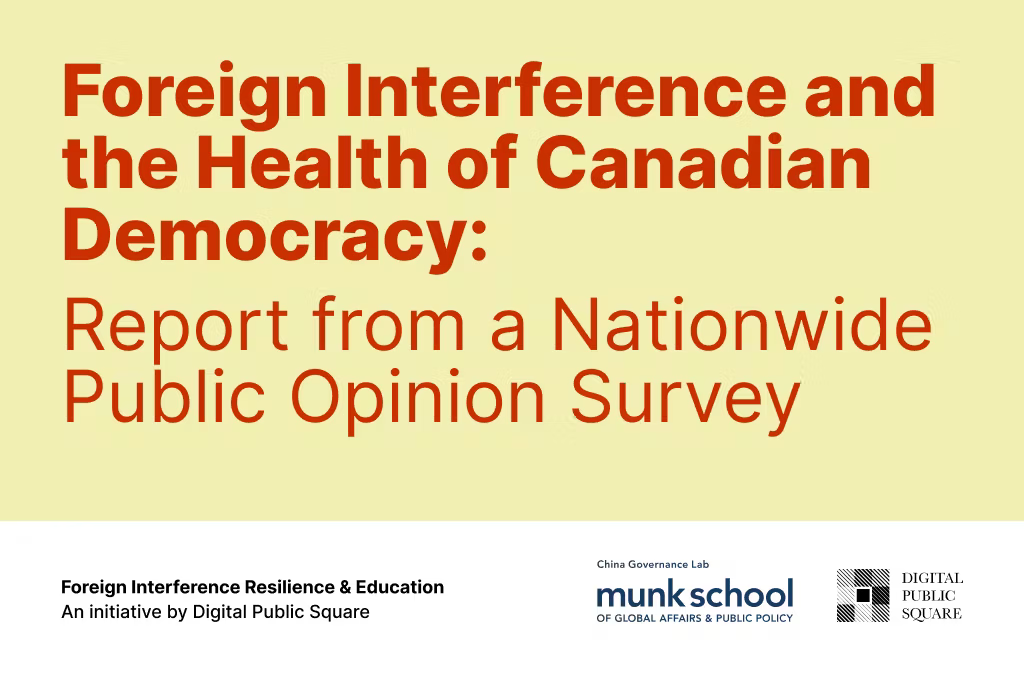Download the full report here. If you have been affected by foreign interference you can find support resources and share your story with us at fire.digitalpublicsquare.org.
Executive Summary
Foreign interference has become a politically salient issue in Canada. Digital Public Square, together with the China Governance Lab at the Munk School of Global Affairs and Public Policy and Abacus Data fielded a survey in June 2024 to better understand Canadians’ perceptions towards these issues and appropriate government responses. A majority of respondents (62 percent) view foreign interference as a serious problem in Canada. Those on the ideological right (71 percent) are more likely to hold this view. The belief that foreign interference is a serious problem is associated with lower confidence in our democracy. Only 60 percent of respondents are satisfied with the way democracy works in Canada. Those identified on the political left (71 percent) are more satisfied than those on the political right (50 percent). Immigrants are also more likely to be satisfied with Canadian democracy than those born in Canada. Elected government officials, elections, and the media, are perceived to be the most susceptible targets of foreign interference.
On a 10-point scale (“1” being the least favorable, and “10” being the most favorable), respondents hold a rather unfavorable view of the People’s Republic of China (PRC) government, compared to marginally positive views of the Canadian and EU governments, and a slightly negative view of the US government. Notably, young adults aged between 18 and 29 are more positive towards the PRC than older respondents. Overall, 50 percent of respondents think the PRC government interfered in the 2021 federal election, and young adults (39 percent) are less likely to think this is true.
Among those having Chinese, Hong Kong, Tibetan, Taiwanese, or Uyghur heritage, 14 percent have directly experienced or know a friend or family member who has experienced political intimidation, harassment, or covert threats by a foreign government. Online harassment (53 percent) and threatening phone calls (40 percent) were the most prevalent forms of intimidation that respondents experienced or heard about.
One-third of respondents (34 percent) believe China has denied Hong Kong its political rights, whereas 15 percent think Hong Kong is just another Chinese city and should be treated as such, and another 14 percent think it already enjoys more freedom than other Chinese cities. About 41 percent of respondents support the political independence of Taiwan, whereas only 13 percent support the status quo, and 7 percent support the PRC’s claim of sovereignty over Taiwan. About one-third of respondents view the Uyghurs (32 percent) and the Tibetans (34 percent), and their cultures and religions, as being repressed by the PRC government. In general, those self-identified as having Hong Kong, Taiwanese, Tibetan, or Uyghur heritage are more likely to believe in the repressiveness of the PRC government.
On the issue of racial discrimination, 44 percent of respondents believe anti-Asian racism is a significant problem in Canada. This view is particularly salient among first-generation immigrants (50 percent) and those with an ethnic Chinese background (59 percent).


